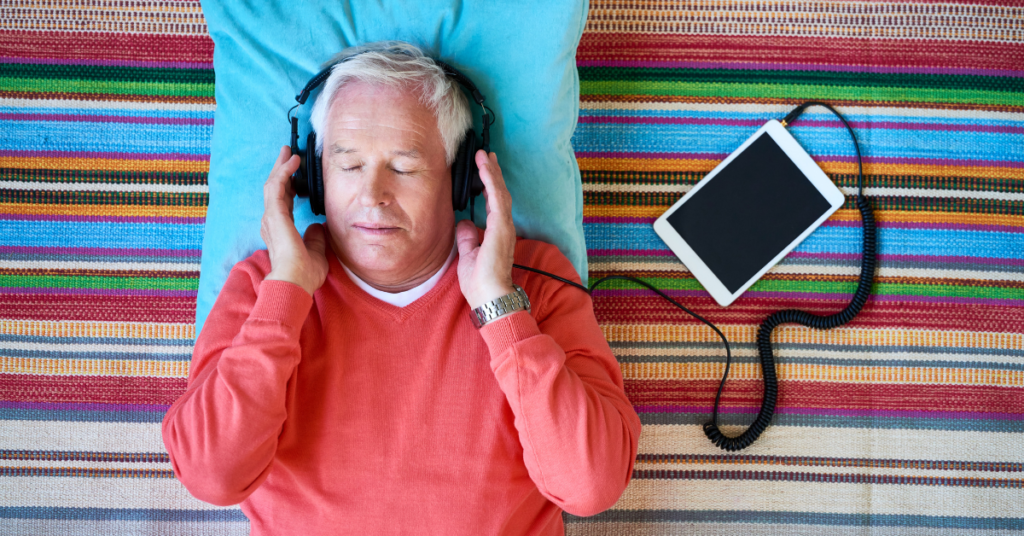“The biggest surprise was that we saw some changes in the brain that we did not necessarily expect… The changes were in the neural pathways of the brain in areas that correlate with memory performance…”
~ Dr. Michael Thaut, Professor, Faculty of Music and Temerty and Faculty of Medicine, University of Toronto and Director, Music and Health Research Collaboratory
Though some dementia-related behaviours may require the use of medications, most can be managed using non-pharmacological approaches. One of these is through music.
We listen to music when we work, drive, exercise, meditate or do chores in the house. Why? Because music can be relaxing and inspiring. It can also be motivating and energizing. Music has a way of triggering memories and evoke emotions. In other words, music stimulates the brain, in one form or another.
The Evidence: What Music Does to the Brain
A research study conducted on both musicians and non-musicians by having them listen to a playlist of familiar music for an hour everyday for three weeks. Cognitive function was assessed before and after the 3-week period using MRI scanning.
At the end of the three weeks, the investigators noted improvements in the participants’ memory scores. Changes were also seen in the neural pathways where cognitive processes occur – the prefrontal cortex.
The results of the brain scan among the participants showed changes in the white matter of the brain. The changes, however, were more significant among the musicians compared to the non-musicians. They attributed this to the fact that musicians may already have a well-established memory network compared to non-musicians.
What does this mean?
This study demonstrates that listening to music has the potential to create changes in both the structure and function of the brain even for individuals with mild cognitive impairment or early Alzheimer’s disease.
Selecting the Type of Music that Works Best
Listening to music the participants love, familiar music, or music that holds some “meaning” or relevance to the person seems to have the best effect.
Similar-sounding music or music that has a similar melody also seems to create the same positive effect on the brain.
The investigators call this type of music, “autobiographically salient music – personally-significant music that is familiar and important for the listener.
Our choice of music is almost like our personal fingerprint. It’s unique to us. We have our own preferences and unique reactions to the music we listen to.
There are songs and music that make us happy, sad, excited, inspired, calm or even hyped up and powerful. There are also songs that evoke memories so vivid that we can see and feel the emotions attached to these memories.
Though more extensive research is required to study how music impacts the brain of those with dementia, there is enough evidence to at least convince us to at least give it a try.
To learn more about dementia and how to better support someone living with symptoms of dementia as a healthcare professional, we invite you to register for our online self-paced course called, “Cracking the Dementia Code™ Fundamentals.” Learn about the Ph.A.C.T.S™ in Dementia Care and how to use Therapeutic Reasoning™.



